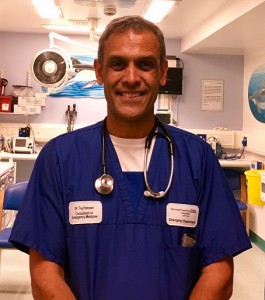Where we are and where we need to be
 Welcome to this month’s RCEM news – schools are back, the blaze of the summer is over (or perhaps an Indian summer ahead) and of course Emergency Departments are girding themselves for what is likely to be an incredibly tough autumn/winter period. We also have a new Secretary of State for Health in England, Matt Hancock, as well Jeane Freeman in Scotland. We will be progressing on a range of work to influence and collaborate with their new teams.
Welcome to this month’s RCEM news – schools are back, the blaze of the summer is over (or perhaps an Indian summer ahead) and of course Emergency Departments are girding themselves for what is likely to be an incredibly tough autumn/winter period. We also have a new Secretary of State for Health in England, Matt Hancock, as well Jeane Freeman in Scotland. We will be progressing on a range of work to influence and collaborate with their new teams.
There has already been discussion by each government about a ‘review of targets’ which has gained some attention in the press. The College of course always welcomes the opportunity to find ways that can improve care delivery and outcomes for our patients but has been firm in its views on the importance of retaining the 4 hr standard. The problem in many ways has been to ensure that there is a proper shared understanding on the matrix that is ‘quality of care ‘ in the ED and also to create better shared ownership of system performance. This month I thought it would be helpful to set out some of the arguments that we have been consistently putting to policymakers and will be doing so again but also to seek your views on the ‘quality matrix’ in ED.
Where we are
Our specialty is in a strong position. Next month will see the 10th anniversary of the College (51 years after the official launch of the specialty). Compared to many parts of the world, we have amongst the very best training programmes for Emergency Medicine and our examinations ( now 22 years old) are well regarded as being the most robust of any of our peers internationally. Over the past decade alone we have moved from a situation where having 10 consultants in an ED overseeing care delivery was regarded as a pipe dream to one where larger systems now have twice that number and more being recruited to help service delivery and sustainability.
Quality improvement methodology is being embedded as part of our training, we have burgeoning non technical skills, safety and leadership development teaching which are being rolled out steadily. Academia flourishes in many more centres than it did a decade ago. We are doing so many things that rightly make us very proud to have chosen the specialty of Emergency Medicine and to care for people in their time of acute need. Our job is rightly to focus on safety for our patients ( and our teams) and timely clinical care based upon acuity.
And yet….
We know there is so much that is wrong with an NHS ( and HSE in Ireland) that has been steadily starved of adequate resources, faces increasing demand and rising workload complexity that will not go away. There also remains far too much variation in the staffing levels especially of medium sized and smaller departments both nursing and medical. The College highlighted this in its ‘Drive for Quality’ report in 2012 and there is also the excellent NHS Benchmarking data subsequently that is published regularly. Each nation is seeking to address this further with ongoing work. In England there is the GIRFT project as you will know that will report next year. Failures to ensure adequate funding has seen an acute bedbase in hospitals being cut by 15% in the past 7 years, social care cut by 10% and clinical staffing that though it has increased at a senior level remains woefully poor and variable within the junior clinical workforce for too many departments.
These pressures have had a range of effects. Certainly it has resulted in steady deterioration of overall emergency care system performance (the 4hr ECS), steadily falling to the point where even at the height of summer, at least 1 in 5 Type I EDs sat below 80% – a marker of heightened risk to safety due to crowding. Compounding that have been the record numbers of attendances at Emergency Departments this summer – linked invariably to failures in primary care and elsewhere.
Where we need to be
As described above, our job as clinicians is to provide timely clinical care in a complex and dynamic environment where the risk of harm ( both for patients and staff) is heightened if it becomes crowded or there is a chronic mismatch of staffing demand and capacity. Safety is the absolute priority. The past two winter periods have shown that in times of adversity our staff have shown remarkable courage and leadership to continue to deliver care in as safe a manner as possible in our EDs. Good systems have also had Executive & Trust Boards who have supported them well during these tough times.
Attempts therefore to dilute or even scrap the 4hr ECS will not in any way improve patient care and will certainly release the pressure to maintain flow thus compromising safety. System performance is linked directly to acute bed capacity, wider system engagement, access to community care for those who are ready to be discharged from hospital and addressing clinical staffing challenges by filling rota gaps. All of those markers of system performance ultimately sit with governments and policymakers to influence ( and fund!).
All metrics point to another tough period ahead – pending the actual arrival of the much sought after funding plan for the NHS for the next 10 years. The College continues to advocate on the key areas in each nation that require urgent attention. Chief amongst these is the funding that will positively influence improvements in system performance – the 4hr ECS. Finding ways to fudge or ‘game the target’ in the meantime should be resisted as that provides only a gross illusion of stability.
What we are doing
Later this month we will be launching a further series of policy papers on staffing and system support. A new winter campaign that aims to profile how systems can best support their staff during our ‘year round winter’ will also be launched.
The policy papers will provide clear position statements on how we should best invest in and value our staff to be able to grow the workforce, reduce attrition and maximize retention – all part of the RCEM Vision 2020.
We will also be holding a summit with all acute system healthcare regulators in the UK and Ireland in late September ( a first for the College) in order to share best practice in terms of safety, system design and staffing.
It promises to be a busy time overall. We are keen however to hear from you on how we best define the ‘quality matrix’ in the ED and will be launching a survey in the autumn that I would be keen to ask you to contribute.
In the meantime, enjoy the last of the balmy weather!
Dr Taj Hassan
President, RCEM


0 Comments